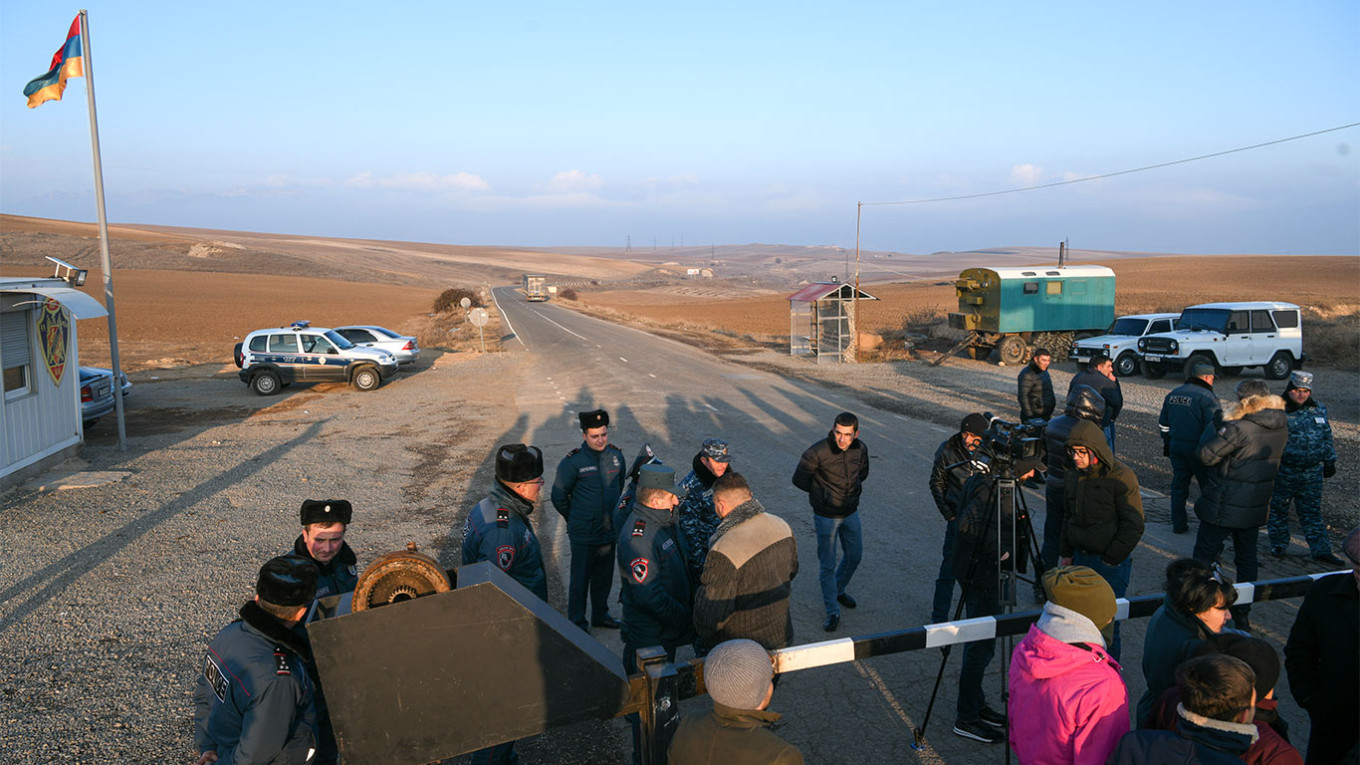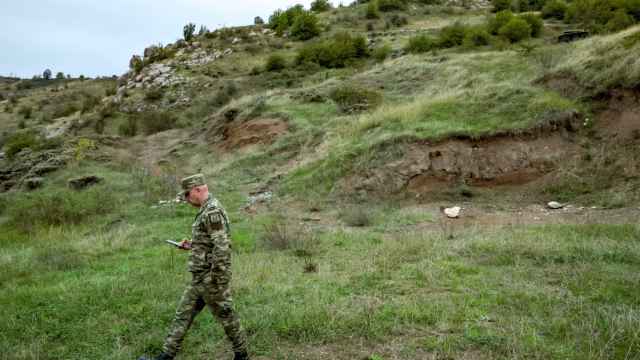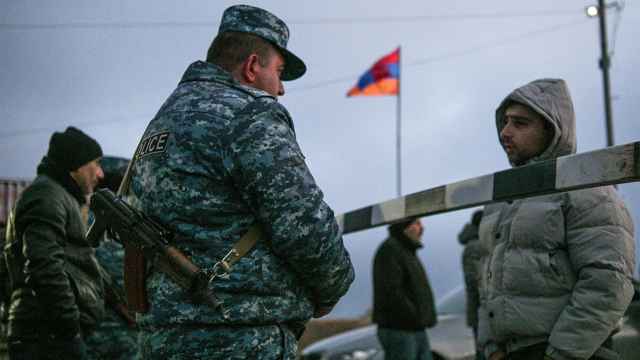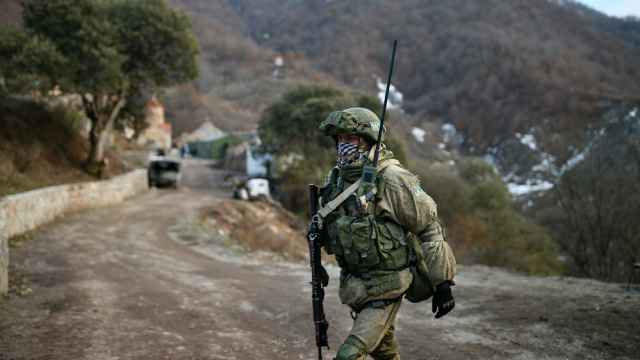Moscow and Baku on Tuesday criticized the deployment of an expanded EU monitoring mission to Armenia's volatile border with Azerbaijan.
Arch Caucasus foes Armenia and Azerbaijan have fought two wars for control of the Nagorno-Karabakh border region but have recently made progress toward a peace deal.
The EU announced last week it had deployed a 100-member civilian mission (EUMA) for two years to the Armenian side of the frontier.
The move comes amid growing Western engagement in the ex-Soviet region viewed by the Kremlin as inside its sphere of influence.
"The EU is openly abusing its relations with Armenia and Azerbaijan," Russian Foreign Minister Sergei Lavrov told a news conference in Baku alongside his Azerbaijani counterpart Jeyhun Bayramov.
He added that the EU mission "raises doubts in terms of its legitimacy... functions, mandate and duration."
Requested by Armenia, the border mission expanded a 40-member team that was deployed for two months late last year.
"Armenia's position at normalization talks with Baku has become more destructive after the EU mission had been set up," Bayramov said.
He said the previous two-month mission "failed to achieve its goals."
Last week, Azerbaijani President Ilham Aliyev said that after what he called a "constructive" meeting with Armenian premier Nikol Pashinyan in Munich, Baku was studying Armenian proposals for a full peace treaty, which Yerevan had unveiled days before.
When the Soviet Union collapsed in 1991, ethnic Armenian separatists in Karabakh broke away from Azerbaijan. The ensuing conflict claimed around 30,000 lives.
Another flare-up in violence in 2020 left more than 6,500 dead and ended after a Russian-brokered truce that saw Armenia cede territories it had controlled for decades.
A Message from The Moscow Times:
Dear readers,
We are facing unprecedented challenges. Russia's Prosecutor General's Office has designated The Moscow Times as an "undesirable" organization, criminalizing our work and putting our staff at risk of prosecution. This follows our earlier unjust labeling as a "foreign agent."
These actions are direct attempts to silence independent journalism in Russia. The authorities claim our work "discredits the decisions of the Russian leadership." We see things differently: we strive to provide accurate, unbiased reporting on Russia.
We, the journalists of The Moscow Times, refuse to be silenced. But to continue our work, we need your help.
Your support, no matter how small, makes a world of difference. If you can, please support us monthly starting from just $2. It's quick to set up, and every contribution makes a significant impact.
By supporting The Moscow Times, you're defending open, independent journalism in the face of repression. Thank you for standing with us.
Remind me later.






